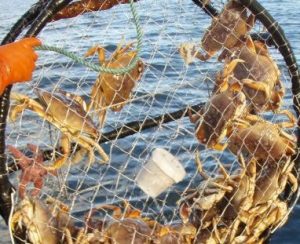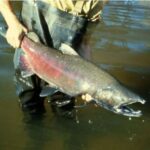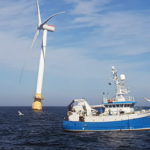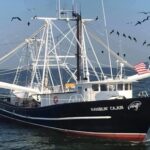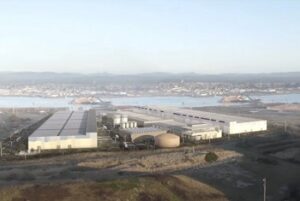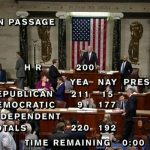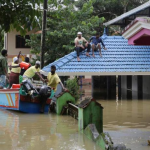Tag Archives: commercial fisherman Dick Ogg
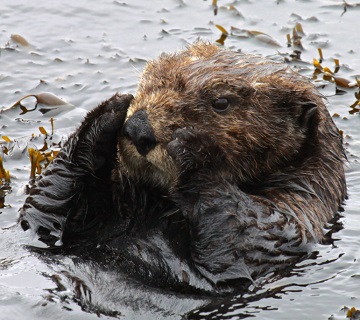
(Un)welcoming Waters: Sea otters poised for comeback to Marin and Sonoma counties
On a daily basis, sea otters consume 25% of their body weight in food. Hence, there are very real concerns by the fishermen who make their living hauling in Dungeness crabs and the other invertebrates that sea otters devour. Reestablishing sea otters could disrupt an entire industry right here in Marin and Sonoma counties and beyond. Dick Ogg, a Sonoma County resident for 62 years, has been fishing most of his life. For the last 25 years, he’s been a commercial fisherman, with his income relying heavily on crabbing. “They’re cute, the sea otters, but they are going to eat whatever they can get their hands on. Everybody knows bringing them back is going to affect the crab industry.” >click to read< 10:24
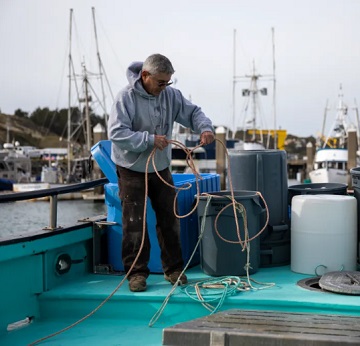
No California salmon: Fishery to be shut down this year
Last year, California’s commercial and recreational fishing fleet, from the Central Coast to the Oregon border, landed about 300,000 salmon. But this year, Davis and other salmon anglers won’t be fishing for salmon at all. Last year, the industry’s economic value was an estimated $460 million for fish sales and related businesses, including restaurants, tackle shops, private fishing guides, campgrounds and other services. Salmon season usually runs from May through October. Only in two previous years — 2008 and 2009 — has California’s salmon season been shut down completely. That closure came as the numbers of spawning fish returning to the Sacramento River, the state’s main salmon producer, crashed to record lows. Now California’s Chinook runs have collapsed again. >click to read< 09:54
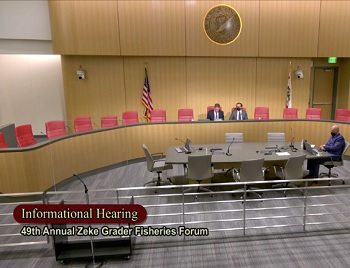
‘A healthy ocean means a healthy fleet’: salmon, crab, kelp, and climate the focus of annual fisheries forum
Dispatches on the state of California’s fisheries this year have brought “a mix of some glimmers of better news, while still struggling with difficult issues,” California Department of Fish and Wildlife (CDFW) Director Chuck Bonham summarized at the 49th Annual Zeke Grader Fisheries Forum on Wednesday afternoon. The forum was moderated by State Senator Mike McGuire as part of the Joint Committee on Fisheries and Aquaculture. In addition to a detailed report from Bonham, the afternoon featured panels on drought and salmon, the dungeness crab season, the state of California’s kelp forests, and aquaculture — as well as a brief public comment period. >click to read< 19:16
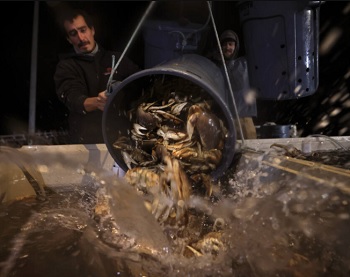
Sonoma Coast Dungeness crab arrives in local markets
Dick Ogg seemed to be relieved to be bringing in a haul of Dungeness crab now that the season has started after a delay of more than a month. “It’s OK,” Ogg said when asked about the haul he had on his boat, Karen Jeanne, which was about 2 miles from shore. “I’m not going to say it’s great. But it’s OK.” Ogg noted that the season provides an economic shot-in-the-arm for those tied to fisheries, especially the estimated 30 crabbers docked in Bodega Bay, the processors who transport the crustaceans, and the markets and restaurants that sell the product. photos, >click to read< 08:43
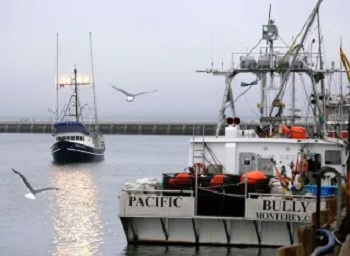
The Fishermen’s Climate Lawsuit Even the Fishermen Don’t Support
A surprising article has cast a spotlight on the discord in the Pacific Coast Federation of Fishermen’s Associations (PCFFA), a trade group of commercial fishermen and crabbers who filed a climate lawsuit three years ago. PCFFA members have soured on the case since it was filed and are speaking out about the hypocrisy of suing fossil fuel companies for producing the very products they rely on to power their fishing boats and question if litigation is the best way to address climate change. These comments are particularly noteworthy given how this case was launched in 2018. As EID Climate noted at the time, cozy ties between the leadership of the group and attorneys seemed to be the reason for the case. But as we see now, the group itself may not actually have been on board. >click to read< Toxic waters devastated Pacific Coast fisheries. But who’s to blame? – Union leaders say fossil fuel companies must pay for rising ocean temperatures. Not all boat captains are persuaded, >click to read< 10:30







